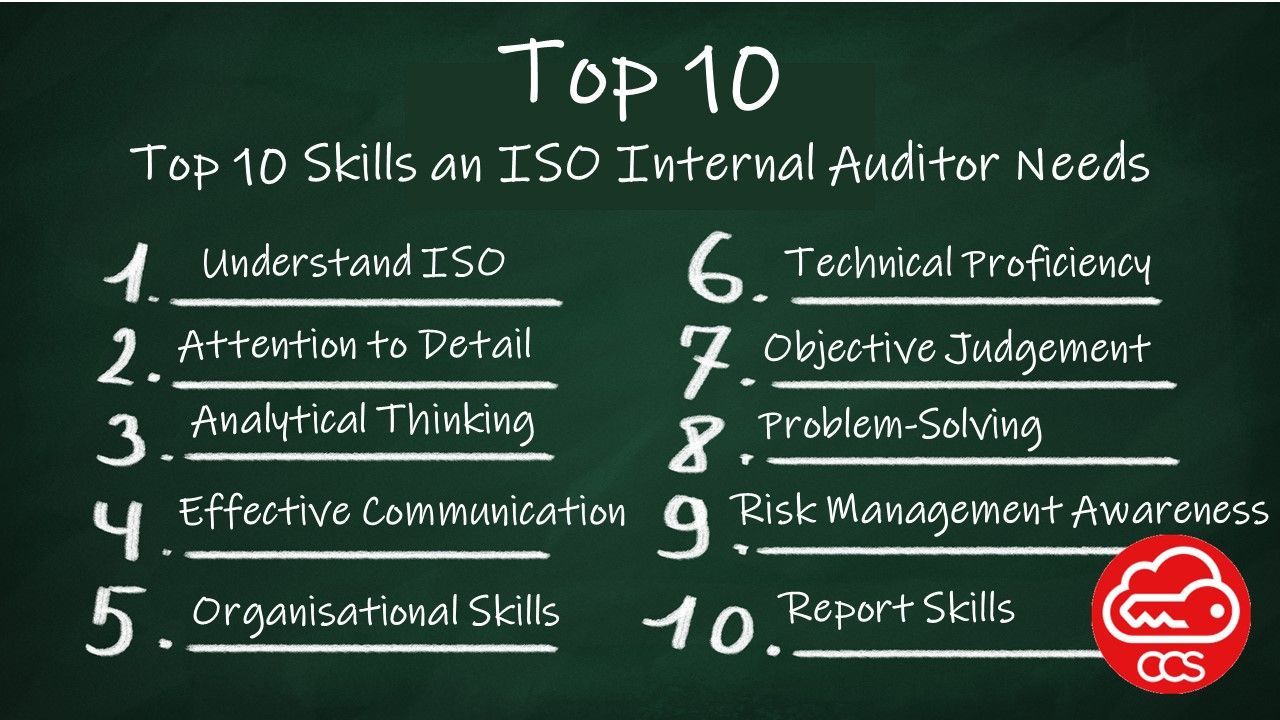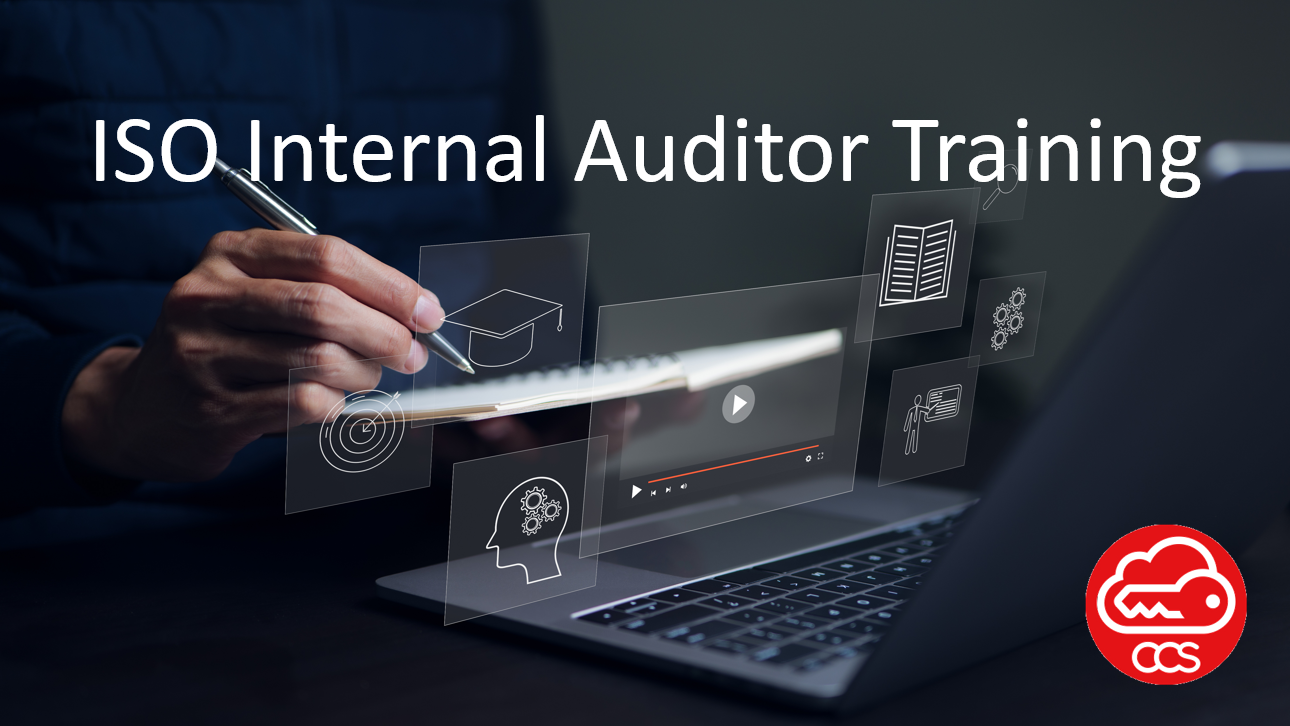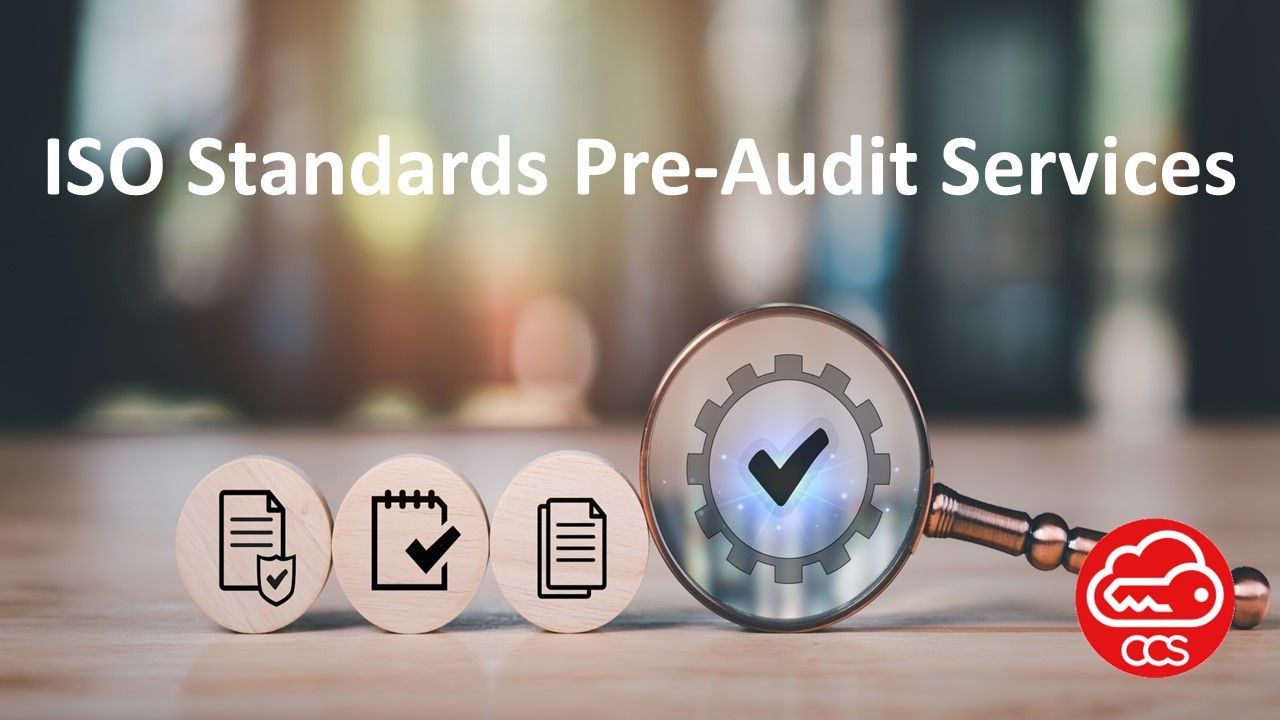To ensure that your internal auditors are well-prepared and confident in their roles, we offer comprehensive ISO Internal Auditor Training. This training is essential for both new ISO-certified companies and those with existing ISO certifications. It equips your team with the knowledge and skills to develop action plans, sample key documents and records, and proactively reduce non-conformances.
Top 10 Skills for ISO Auditors and the Impact of ISO Training
Internal audits are a vital part of maintaining ISO compliance and driving continuous improvement within an organisation. The role of an ISO internal auditor is to ensure that a company adheres to ISO standards, identifying areas for improvement and instances of non-conformance. To excel in this role, internal auditors must possess a unique combination of skills. Below are the top 10 essential skills for an ISO internal auditor, and how ISO Internal Auditor Training can help develop and enhance these skills:
1. Understanding of ISO Standards
An ISO internal auditor must have a solid understanding of the relevant ISO standards, such as ISO 9001, ISO 14001, and ISO 45001. This includes being familiar with the specific clauses, requirements, and best practices outlined in these standards. ISO Internal Auditor Training provides in-depth knowledge of these standards, including an analysis of important clauses and the structure of standards like Annex SL, enabling auditors to apply them more effectively in real-world situations.
2. Attention to Detail
Internal auditors must be meticulous in identifying even minor instances of non-conformance in processes or documentation. ISO training sharpens attention to detail by teaching participants how to sample documents thoroughly, verify processes, and review case studies, ensuring that auditors are adept at recognising any discrepancies or gaps in compliance.
3. Analytical Thinking
Being able to think analytically is essential for auditors, who must interpret data and identify the root causes of non-conformances. ISO auditor training enhances analytical thinking by introducing systematic problem-solving techniques, such as the PDCA (Plan-Do-Check-Act) cycle, which is a core methodology for auditing and process improvement.
4. Effective Communication
ISO internal auditors must communicate their findings clearly and effectively to stakeholders at all levels of the organisation. ISO Auditor Training includes practical exercises in conducting interviews, presenting audit results, and giving actionable feedback, ensuring that auditors refine both their verbal and written communication skills, particularly in drafting comprehensive audit reports.
5. Organisational Skills
Auditors need to be well-organised, able to plan audits, manage documentation, and follow up on corrective actions in a timely manner. ISO training covers best practices for audit planning, prioritisation, and documentation, helping auditors streamline their processes to handle even complex audit cycles efficiently.
6. Technical Proficiency
Internal auditors must be proficient in using various tools for document control, data analysis, and reporting. Many ISO systems require familiarity with software that manages audit data. Through ISO Auditor Training, participants become more comfortable with industry-standard tools, enhancing their technical capabilities for conducting detailed audits.
7. Objective Judgement
Maintaining objectivity is key to being an effective auditor. ISO internal auditors must base their findings on evidence rather than personal biases. ISO training highlights the importance of ethical auditing and impartiality, teaching participants how to conduct objective audits and manage potential conflicts of interest.
8. Problem-Solving
Auditors are not only responsible for identifying non-conformances, but also for recommending corrective actions. ISO Internal Auditor Training equips participants with the skills to develop effective action plans. The training includes practical examples of how to address non-conformances, identify risks, and implement long-term solutions.
9. Risk Management Awareness
A solid understanding of risk management is essential, as auditors must evaluate risks to the organisation’s compliance and recommend mitigation strategies. ISO Auditor Training introduces the concept of risk-based thinking, which is integral to modern ISO standards, enabling auditors to identify and address potential risks in the auditing process.
10. Report Writing Skills
An internal auditor must be able to produce clear, concise, and actionable reports. Effective report writing ensures that management fully understands the audit findings and can take appropriate actions. ISO Auditor Training includes practical exercises on how to structure audit reports, summarise findings, and present data in a clear and meaningful way.
How ISO Internal Auditor Training Enhances These Skills
ISO Internal Auditor Training is designed to equip participants with both the theoretical knowledge and practical skills needed to become competent internal auditors. Here’s how the training enhances the key skills required:
- Comprehensive Learning:
- The training covers all essential aspects of ISO standards, ensuring that auditors have a deep understanding of the requirements they need to audit.
- Hands-On Experience:
- Through case studies, role-playing, and real-world scenarios, participants gain practical experience, refining their auditing techniques in a controlled setting.
- Expert Instruction:
- Courses are led by experienced, IRCA-qualified instructors, who provide valuable insights from years of professional auditing experience.
- Interactive Workshops:
- These workshops provide an interactive environment where auditors can improve their communication, report writing, and problem-solving skills through realistic audit exercises.
- CPD Accreditation:
- All courses are CPD-accredited, ensuring that participants receive training that meets professional development standards. Successful completion leads to certification, which is a valuable addition to an auditor’s credentials.
- Personalised Learning:
- Whether the participant is new to auditing or a seasoned professional, the training is designed to cater to all levels of expertise, ensuring that everyone gets the maximum benefit from the course.
- Risk-Based Auditing:
- By focusing on risk management, the training instils a proactive mindset, teaching auditors to think ahead, reduce non-conformances, and improve organisational processes.
- Integrated Management Systems:
- For auditors who need to work across multiple standards, the training in integrated management systems (covering ISO 9001, ISO 14001, and ISO 45001) ensures they can efficiently manage audits in a variety of contexts.
Being an effective ISO internal auditor requires a broad set of skills, ranging from technical knowledge of ISO standards to strong communication and organisational abilities. ISO Internal Auditor Training is designed to enhance these skills through a combination of structured learning, practical exercises, and expert instruction. By investing in this training, organisations can empower their auditors to confidently conduct audits, identify non-conformances, and drive continuous improvement in their ISO management systems. This results in successful audits, long-term compliance, and sustained operational excellence.






